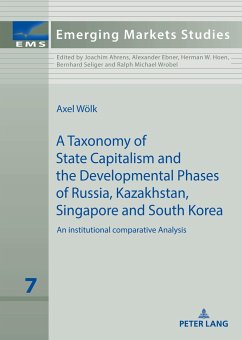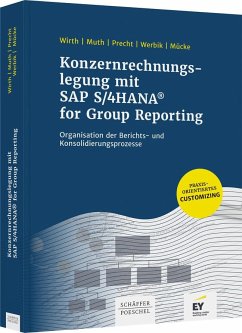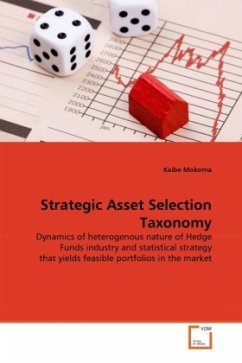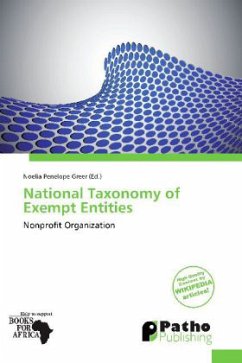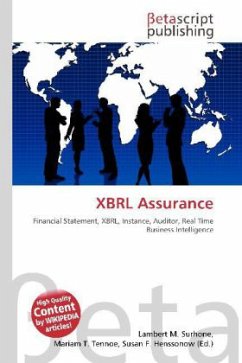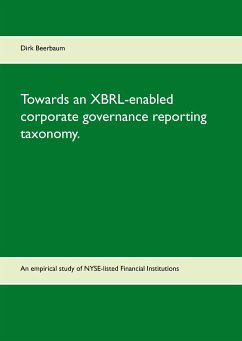
Towards an XBRL-enabled corporate governance reporting taxonomy.
An empirical study of NYSE-listed Financial Institutions

PAYBACK Punkte
0 °P sammeln!
Corporate Governance failures of large corporations such as Lehman Brothers have evoked a plethora of calls for changes in Corporate Governance Principles. Despite the fact that after the financial crisis, a number of transnational institutions have called for wide-scale changes related to Corporate Governance Principles by further protecting share-holders' rights, it has been proven that theoretical extension and reform of Corporate Governance Principles is not enough, because it does not ensure successful implementation. According to a report from Isaksson (2009), corporate disclosures were ...
Corporate Governance failures of large corporations such as Lehman Brothers have evoked a plethora of calls for changes in Corporate Governance Principles. Despite the fact that after the financial crisis, a number of transnational institutions have called for wide-scale changes related to Corporate Governance Principles by further protecting share-holders' rights, it has been proven that theoretical extension and reform of Corporate Governance Principles is not enough, because it does not ensure successful implementation. According to a report from Isaksson (2009), corporate disclosures were not in line with OECD principles on good Corporate Governance. Moreover, according to Isaksson (2009), the financial crisis can also be traced back to incomplete Corporate Governance disclosures. One major implementation topic involves Corporate Governance Reporting, which is very complex for multinational companies, as it involves statutory compliance with multiple rules and laws, coping with heterogeneous "Systems of Corporate Governance" (Weimer and Pape, 1999; Leuz et al., 2003; Tylecote and Visintin, 2007) and additionally the compilation of codes (Cadbury, 1993) and industry-specific standards (Mach et al., 2006; Bebchuk and Spamann, 2010). Extensible Business Reporting Language (XBRL) is assumed as a benchmark related to interactive business disclosures (Chen and Sun, 2009; Debreceny et al., 2010; Alles and Piechocki, 2012). Does XBRL have the potential to help to reduce the complexity of companies' Corporate Governance Reporting (Alles and Piechocki, 2012)? In the academic literature, there are many articles which conclude that it is possible for XBRL to enhance transparency and improve Corporate Governance for financial reporting (Abdullah et al., 2009; Roohani et al., 2010; Alles and Piechocki, 2012; Müller-Wickop et al., 2013): therefore, an additional question is whether the application of XBRL to the non-financial reporting of Corporate Governance can also contribute to enhanced transparency.Within the peer group of listed Foreign Private Issuers on the New York Stock Exchange there is no adequate Taxonomy available.




